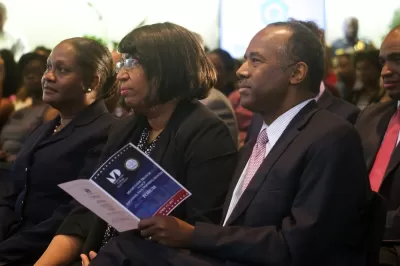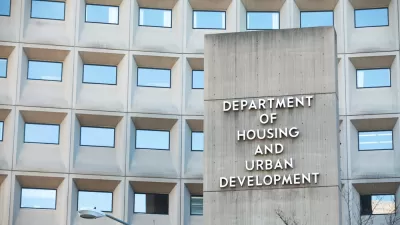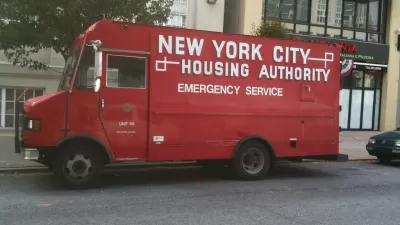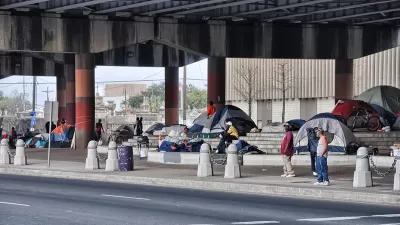Secretary Ben Carson's vision for the Department of Housing and Urban Development focuses on a new workforce development program called EnVision Centers.

Robert Abare interviews Urban Institute fellow Susan J. Popkin on the subject of EnVision Centers, the centerpiece of Secretary Ben Carson's agenda at the Department of Housing and Urban Development (HUD) as he tries to move the mission of HUD away from public housing and toward self-reliance.
Abare explains the EnVision Centers concept as follows: "Located on or near public housing developments, the centers are to be hubs where residents can access services intended to boost self-sufficiency among assisted people through four pillars: character and leadership, educational advancement, economic empowerment, and health and wellness."
As has been noted in previous coverage of Secretary Carson's frustrations in his role at HUD, EnVision Centers have not been devoted much priority. The Trump Administration's most recent budget request, while likely to be mostly ignored by Congress like most presidential budget requests, only includes $2 million for the EnVision Centers. Still, give the importance of the concept to Secretary Carson's agenda, Abare questions Popkin about the precedents, potential, and shortcomings of the idea.
Popkin makes it clear at the outset of the interview that EnVision Centers are based on familiar ideas, and that previous workforce programs have produced modest effects. When asked what is standing in the way of self-sufficiency for the residents of public housing in locations around the United States, Popkin answered thusly:
HUD should be wary of implying that people in public housing don’t want to work—they do. When I’ve visited public housing properties and asked residents what they need, they say jobs.
But low-income people also say that they need various supports to be able to work. They need child care, a wage that can support a decent quality of life, a system that doesn’t put a 100 percent tax on benefits like TANF [Temporary Assistance for Needy Families], SNAP [the Supplemental Nutrition Assistance Program], and housing assistance when they start earning more, and reliable and affordable transportation options.
FULL STORY: Ben Carson’s plan for “EnVision Centers” looks familiar and needs realistic expectations

Planetizen Federal Action Tracker
A weekly monitor of how Trump’s orders and actions are impacting planners and planning in America.

San Francisco's School District Spent $105M To Build Affordable Housing for Teachers — And That's Just the Beginning
SFUSD joins a growing list of school districts using their land holdings to address housing affordability challenges faced by their own employees.

The Tiny, Adorable $7,000 Car Turning Japan Onto EVs
The single seat Mibot charges from a regular plug as quickly as an iPad, and is about half the price of an average EV.

Seattle's Plan for Adopting Driverless Cars
Equity, safety, accessibility and affordability are front of mind as the city prepares for robotaxis and other autonomous vehicles.

As Trump Phases Out FEMA, Is It Time to Flee the Floodplains?
With less federal funding available for disaster relief efforts, the need to relocate at-risk communities is more urgent than ever.

With Protected Lanes, 460% More People Commute by Bike
For those needing more ammo, more data proving what we already knew is here.
Urban Design for Planners 1: Software Tools
This six-course series explores essential urban design concepts using open source software and equips planners with the tools they need to participate fully in the urban design process.
Planning for Universal Design
Learn the tools for implementing Universal Design in planning regulations.
Smith Gee Studio
City of Charlotte
City of Camden Redevelopment Agency
City of Astoria
Transportation Research & Education Center (TREC) at Portland State University
US High Speed Rail Association
City of Camden Redevelopment Agency
Municipality of Princeton (NJ)





























